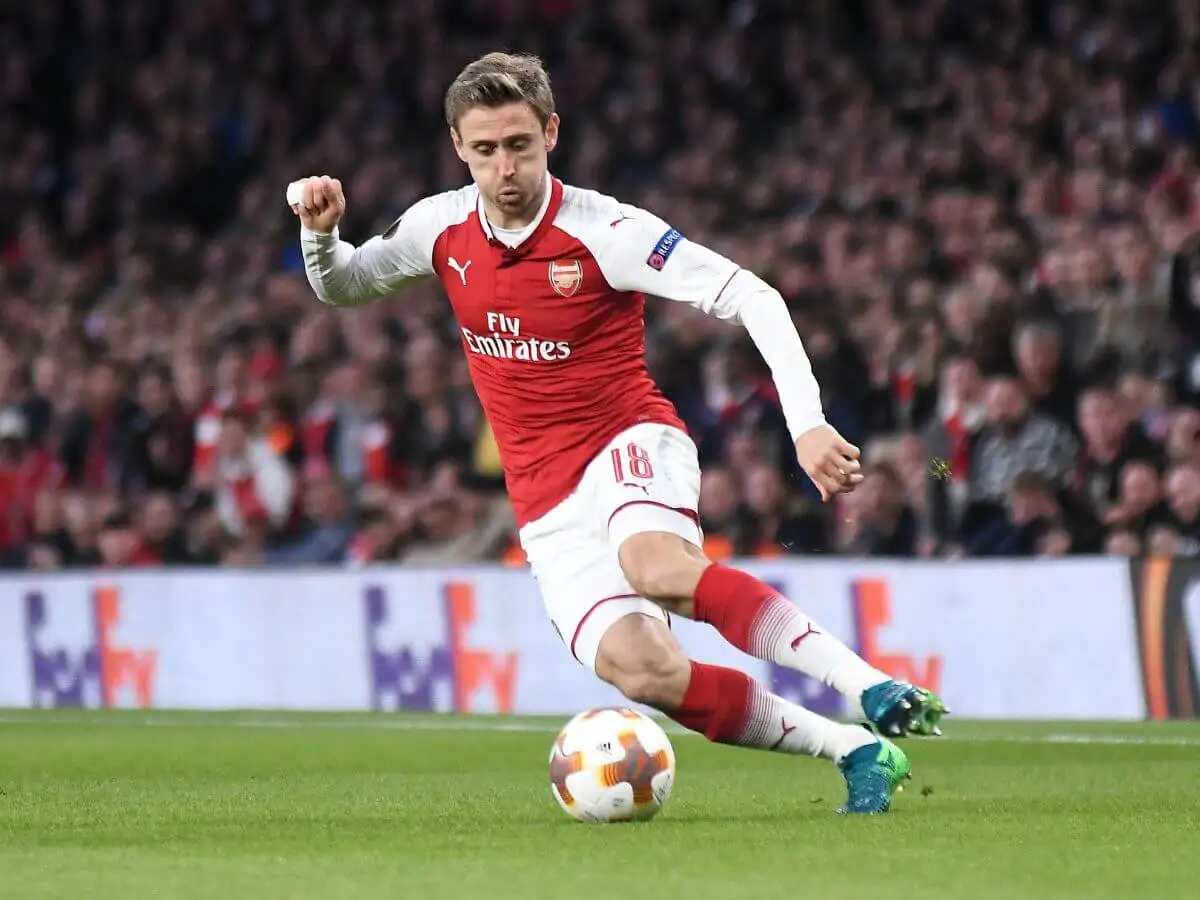Nacho Monreal's Retirement: How Does This Stage Affect Athletes?


Reviewed and approved by the psychologist Elena Sanz
Former Spain national team player Nacho Monreal has announced his retirement from professional soccer. Last season, a knee injury prevented him from playing many matches. Now, he will have to face a different stage of his life with several challenges ahead.
Monreal had a successful career. He played in two of the main leagues in the world: La Liga and the Premier League, defending the colors of Osasuna, Malaga, Arsenal, and Real Sociedad. With the Spanish national team, he played 22 games and was even called up to the Russia 2018 World Cup.
In August 2022, the defender decided to hang up his cleats and move on to a new stage of his life. One that, for most athletes, presents certain challenges, as we will see below.
The knee injury that led to Nacho Monreal’s retirement
Before delving into the life of athletes after retirement, it’s first worth dedicating a few lines to the knee injury that complicated Monreal’s last year as a footballer. The Spanish player from Navarra suffered from a series of discomforts in his right knee that he tried to rehabilitate first with conservative treatment and then with arthroscopy.
As a result of these complications, the full-back was out of action for 325 days. In that period, he missed a total of 51 matches with his team, Real Sociedad.
The last time he was on the field was in the final of the Copa del Rey 2020/2021, in which his team was crowned champion. At that time, he was already injured.

Retirement: A difficult stage for an athlete
At some point, all athletes must leave their professional activity. If not managed effectively, this transition can be very difficult to cope with.
First of all, retirement implies a radical change in lifestyle as long as the soccer player doesn’t continue to be linked to the sport in another role, such as being a coach. When retiring from their sport, there are no more daily training sessions, trips with the team, or favorable or elusive results.
In addition to this, a major source of economic income also stops. If the athlete didn’t exercise proper financial planning in the previous years, this aspect may also be a major stress factor in his or her “new life.”
We think you may also enjoy reading this article: How Many Games do Soccer Players Play Per Year and What Are the Risks?
Some tactics to face sports retirement in a healthy way
As happens to older people who reach the age to retire from their jobs, athletes face an unusual amount of free time after retirement. The difference is that they do so with quite a few more years to live, since they’re usually in their 30s when they retire.
At this time, it’s a good idea to devote time to hobbies and personal projects that were previously postponed because of their athletic obligations. Family time should also be a priority, since many athletes have often had to put aside moments with their loved ones for so many years.
Establishing a long-term project and dividing it into mini-objectives – which are smaller and more concrete actions for daily life – is also a recommendable strategy. Of course, you have to leave room for leisure, but that doesn’t mean you have to stop being or feeling productive.
In this sense, taking care of your health should also be a top priority. Although it’s unthinkable to continue being in the same physical shape you were in during your professional activity, staying healthy is always crucial.
Many retired athletes relax with their new routine, and this translates not only into a less well-kept silhouette, but also into potential health complications.

What to do after retirement
Other activities that can be emphasized after retirement include the following:
- Start practicing other sports or participating in other disciplines.
- Strengthen your bond with your friends and family by spending more time with them.
- Dedicate time to introspection and self-knowledge.
- Collaborate and volunteer with community initiatives.
- Undertake a new work project.
Like this article? You may also like to read: The Women’s EURO Cup: Female Soccer Players Capture the World’s Attention
Nacho Monreal: One more professional athlete facing retirement
There are those who may interpret this new reality as a precipice or a frightening point in a person’s life where it becomes difficult to move forward or even look ahead. However, it’s actually more of an opportunity.
After so many years doing the same thing, leaving professional sports is an option to change one’s focus. After retirement, Nacho Monreal will no longer have to deal with the injuries that caused him so many headaches at the end of his career. Like so many others have done before him, he can begin an equally productive and happy era in his life.
All cited sources were thoroughly reviewed by our team to ensure their quality, reliability, currency, and validity. The bibliography of this article was considered reliable and of academic or scientific accuracy.
- Ramajo, R. 16 de agosto de 2022. Monreal cuelga las botas. As.com. https://as.com/futbol/primera/monreal-cuelga-las-botas-n/
- Nacho Monreal. Transfermarkt. https://www.transfermarkt.com.ar/nacho-monreal/verletzungen/spieler/43003
This text is provided for informational purposes only and does not replace consultation with a professional. If in doubt, consult your specialist.








